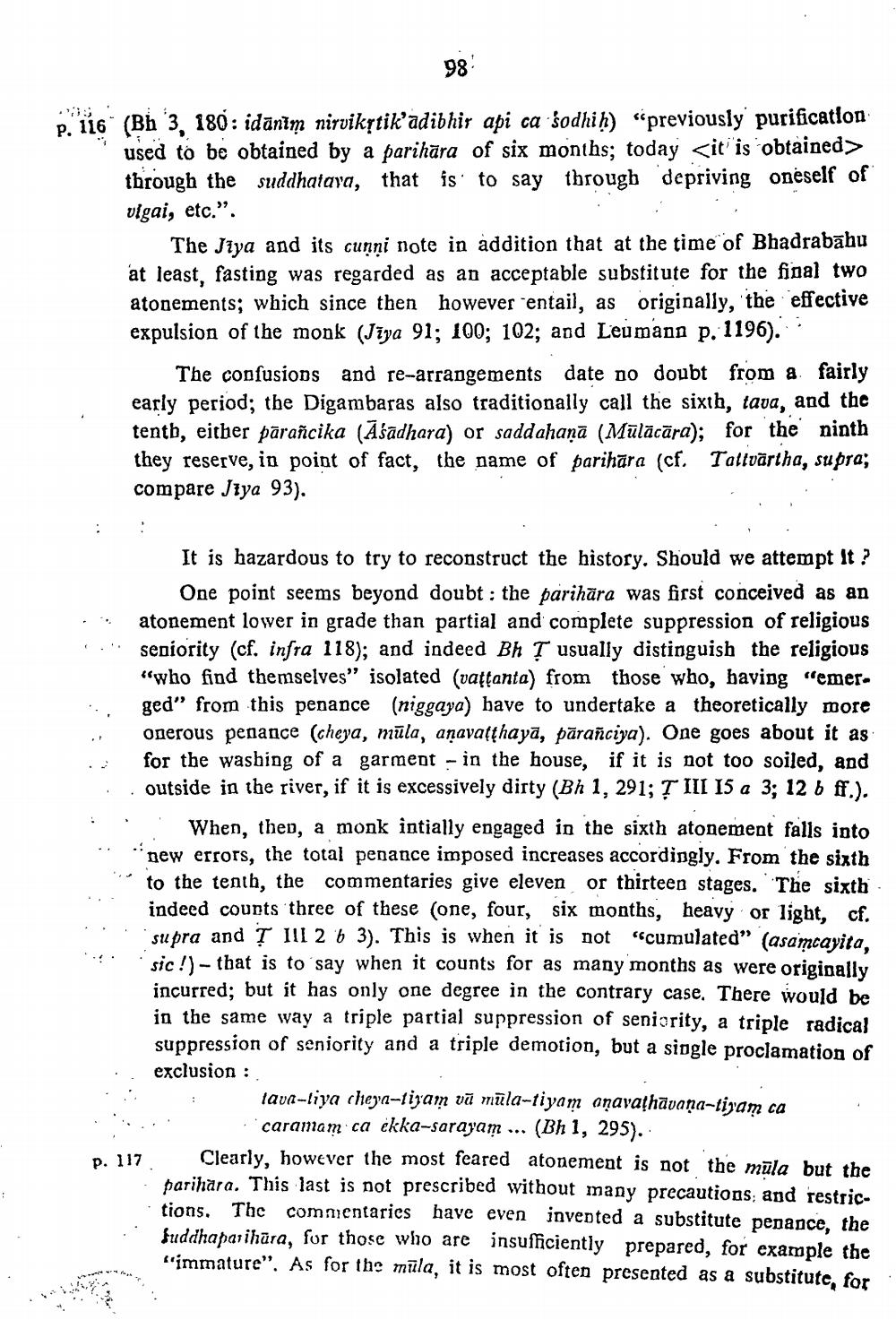________________
98
p. 116 (Bh 3, 180: idānim nirvikstik’adibhir api ca sodhih) previously purification:
used to be obtained by a parihāra of six months; today <it is obtained> through the suddhatava, that is to say through depriving oneself of vigai, etc.".
The Jiya and its cunni note in addition that at the time of Bhadrabāhu at least, fasting was regarded as an acceptable substitute for the final two atonements; which since then however "entail, as originally, the effective expulsion of the monk (Jiya 91; 100; 102; and Leumann p. 1196).
The confusions and re-arrangements date no doubt from a fairly early period; the Digambaras also traditionally call the sixth, tava, and the tentb, either pārañcika (Āśadhara) or saddahaņā (Mūlācāra); for the ninth they reserve, in point of fact, the name of parihara (cf. Taltvärtha, supra; compare Jiya 93).
It is hazardous to try to reconstruct the history. Should we attempt it?
One point seems beyond doubt : the parihāra was first conceived as an atonement lower in grade than partial and complete suppression of religious seniority (cf. infra 118); and indeed Bh I usually distinguish the religious "who find themselves" isolated (vastanta from those who, having "emer. ged" from this penance (niggaya) have to undertake a theoretically more onerous penance (cheya, mūla, anavatthayā, pārañciya). One goes about it as for the washing of a garment - in the house, if it is not too soiled, and outside in the river, if it is excessively dirty (Bh 1, 291; T III 15 a 3; 12 b ff.).
. :When, ther, a monk intially engaged in the sixth atonement falls into
new errors, the total penance imposed increases accordingly. From the sixth to the tenth, the commentaries give eleven or thirteep stages. The sixth indeed counts three of these (one, four, six months, heavy or light, cf. supra and T III 2 b 3). This is when it is not "cumulated" (asamcavita. sic!)--that is to say when it counts for as many months as were originally incurred; but it has only one degree in the contrary case. There would be in the same way a triple partial suppression of seniority, a triple radical suppression of seniority and a triple demotion, but a single proclamation of exclusion :
tava-liya cheya-liyam vā mūla-tiyam anavathāvana-tiyam ca
caramam ca ékka-sarayam ... (Bh1, 295). o uz Clearly, however the most feared atonement is not the müla but the
barihara. This last is not prescribed without many precautions and restrictions. The commentaries have even invented a substitute penance, the fuddhaparihāra, for those who are insufficiently prepared, for example the "immature". As for the müla, it is most often presented as a substitute, for




